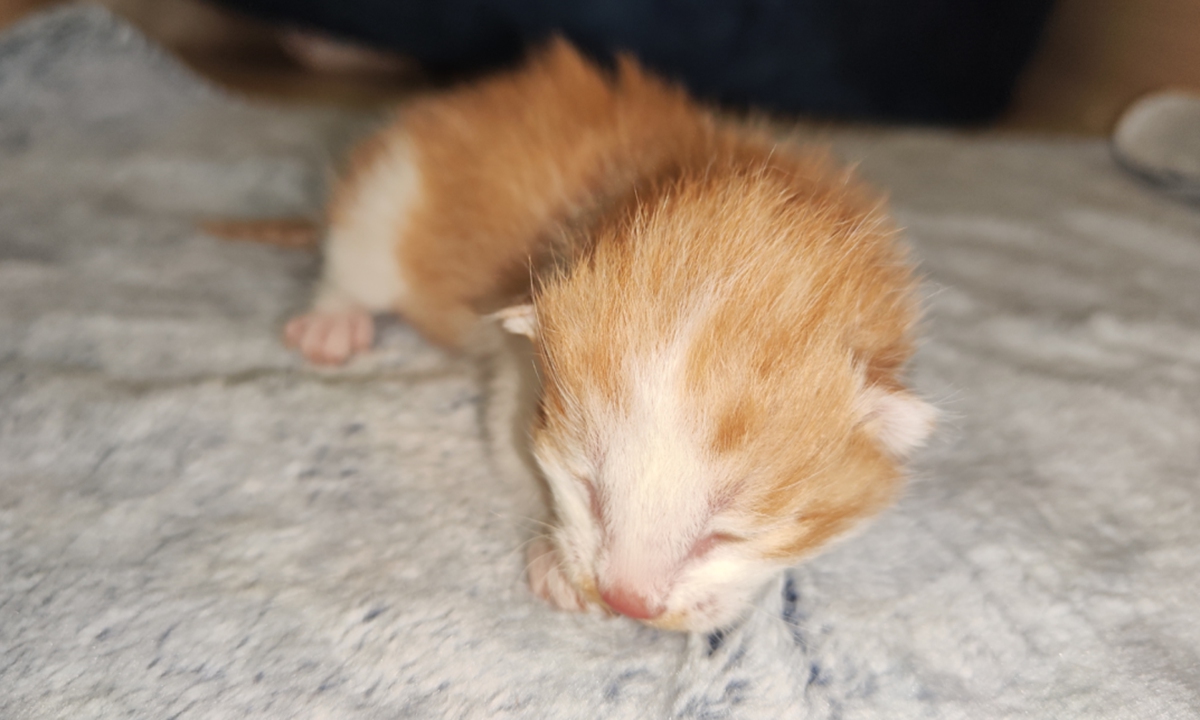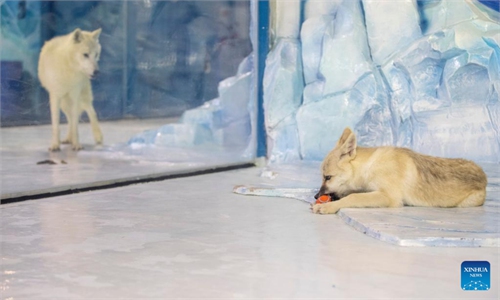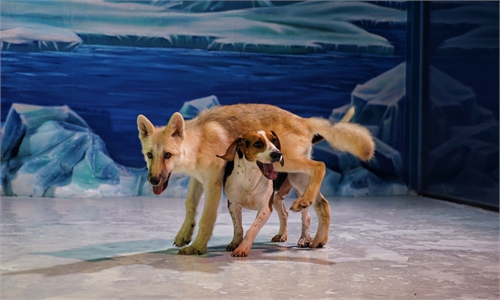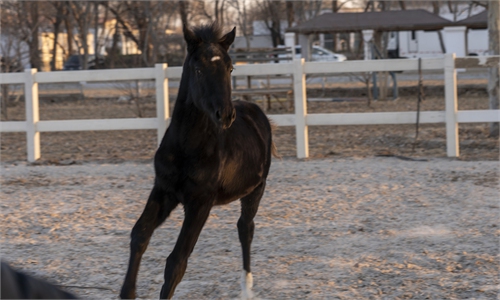
The first cat cloned using only Chinese equipment, reagents and consumables throughout the entire process is born in Qingdao, East China's Shandong Province on November 19, 2023. Photo: Courtesy of Qingdao Agricultural University.
The first cat cloned using only Chinese equipment, reagents and consumables throughout the entire process was born in Qingdao, East China's Shandong Province. A researcher on the project said the process will increase efficiency in cloning animals, while also reducing costs.
The cat, a 141-gram male orange cat, was born naturally after 69 days of gestation by a surrogate. The cat was born at a mammalian somatic cell cloning base, jointly established by Qingdao Agricultural University and a private firm, on Sunday.
The birth of this cloned cat demonstrates that China has a complete industrial chain in the field of animal cloning, Zhao Minghui, an associate professor from the college, who participated in the research, told the Global Times on Monday.
The successful cloning of cats is a major breakthrough in the field of somatic cell cloning by the College of Life Sciences at Qingdao Agricultural University. The cloning of cats requires higher requirements for equipment, reagents and consumables, and the operation is more delicate, according to Zhao.
In previous animal cloning, the majority of reagents and core equipment were purchased from foreign companies, but technological restrictions and the frequent unstable quality of imported goods led the team to seek domestic solutions, Zhao noted.
Zhao's research on cloning technology began in 2020 when he discovered frequent performance instability in imported drugs in the field of pig cell cloning, leading to multiple experimental issues. This led the team to start researching domestically produced alternatives for animal cell cloning-related reagents.
More and more pet owners who can't bear the pain of losing their pets are becoming willing to pay a lot of money just to keep them around, creating a commercial opportunity for animal cloning.
The new milestone is expected to largely reduce the cost of animal cloning and further contribute to the commercialization of the industry, Zhao noted.
China's first cloned pet cat "Garlic" was born in 2019. Sinogene Biotechnology Co, which announced the success of the cloning technology, has previously successfully cloned pet dogs for dozens of clients, including owners who can't get over missing their pets. The market price of a cloned cat is around 250,000 yuan ($34,900), while a cloned dog runs around 380,000 yuan, according to media reports.




